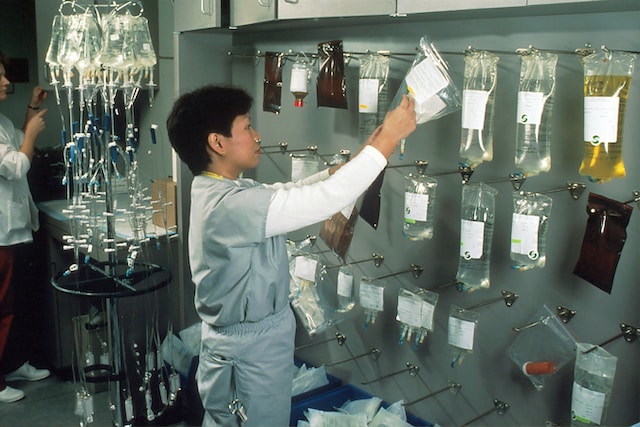In a society where the stigma surrounding mental health remains prevalent, a groundbreaking breakthrough is challenging the status quo. Ketamine, once known primarily as a party drug, is now emerging as a transformative treatment option for individuals with treatment-resistant depression, offering hope and a renewed sense of possibility. Depression affects millions of people worldwide, and
In a society where the stigma surrounding mental health remains prevalent, a groundbreaking breakthrough is challenging the status quo. Ketamine, once known primarily as a party drug, is now emerging as a transformative treatment option for individuals with treatment-resistant depression, offering hope and a renewed sense of possibility.
Depression affects millions of people worldwide, and a significant number of them do not respond to traditional treatments such as medication and therapy. For years, these individuals have faced a discouraging reality, trapped in a cycle of despair with limited options. However, a recent development in the field of psychiatry is reshaping the narrative and instilling newfound hope.
Ketamine, an anesthetic agent commonly associated with recreational use, has shown remarkable potential in treating treatment-resistant depression. The drug operates on a different neurochemical pathway compared to traditional antidepressants, making it a promising alternative for those who have not found relief through conventional means.
Numerous studies have demonstrated the efficacy of ketamine in rapidly alleviating depressive symptoms. In many cases, patients experience a significant reduction in symptoms within hours or days of treatment, a stark contrast to the weeks or even months required for conventional antidepressants to take effect. This rapid response time is nothing short of revolutionary and has the potential to save lives.
Dr. Sarah Thompson, a leading psychiatrist at the forefront of ketamine research, explains, “Ketamine acts on the brain’s glutamate system, influencing synaptic connections and facilitating the restoration of neural circuits associated with mood regulation. This mechanism of action is distinct from traditional antidepressants, making ketamine an exciting avenue to explore for individuals with treatment-resistant depression.”
The impact of ketamine extends beyond its pharmacological effects. By challenging the stigma surrounding mental health and expanding treatment options, ketamine is playing a crucial role in breaking down barriers and opening doors for those who have long suffered in silence. It offers a glimmer of hope for individuals who have been told that their condition is untreatable or that their struggles are simply a product of personal weakness.
Yet, it is important to acknowledge that ketamine is not a miracle cure, nor is it without its own set of considerations. The drug’s potential side effects, including dissociation and transient spikes in blood pressure, must be carefully monitored. Additionally, the long-term effects of prolonged ketamine use require further investigation. Responsible administration and supervision by trained healthcare professionals are paramount to ensuring the safety and efficacy of ketamine treatment.
The shift in perception surrounding ketamine poses new challenges and opportunities for mental health professionals, policymakers, and society as a whole. We must strive to strike a balance between harnessing the potential benefits of ketamine while ensuring its responsible and ethical use. Efforts should be made to expand access to this treatment option, making it more affordable and available to a wider range of individuals who could potentially benefit from it.
Furthermore, education and awareness initiatives are crucial to dispel misconceptions and combat the lingering stigma associated with mental health. By promoting open conversations, sharing personal stories, and highlighting success stories, we can create an environment of empathy and support for those battling treatment-resistant depression and other mental health conditions.
In the journey to overcome the stigma of mental health, ketamine’s emergence as a viable treatment option represents a significant step forward. It challenges societal norms, encourages innovation, and fosters a sense of hope for individuals who have long been marginalized by their condition.
As we celebrate the breakthroughs achieved thus far, we must remain committed to ongoing research, ethical practices, and the well-being of those seeking relief from the burden of treatment-resistant depression. By working together, we can transform lives and cultivate a more compassionate and inclusive society for all.

















Leave a Comment
Your email address will not be published. Required fields are marked with *